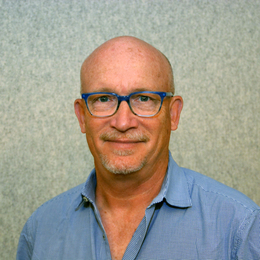
Oscar-winning documentarian Alex Gibney is all about the story. His latest film, “Zero Days,” is an adrenaline-inducing thriller about the hush-hush advances in cyber-warfare. In it, Gibney lays bare the details of Stuxnet, the supposed American-Israeli cyber-weapon credited with disrupting Iran’s nuclear program. It also suggests Stuxnet was only a small piece of a larger cyber-operation against Iran, code named Nitro Zeus.
Gibney is a master at not only uncovering secrets but also presenting dry facts in intriguing ways. His “Taxi to the Dark Side” earned him an Oscar, while his 2005 film, “Enron: The Smartest Guys in the Room,” was nominated for an Academy Award. He also won six Emmys—three for “Going Clear: Scientology and the Prison of Belief,” and three for “Mea Maxima Culpa: Silence in the House of God.”
Although best known for his entertaining and thoughtfully constructed documentaries, Gibney has begun working on his first feature film, “The Action,” which has local ties. The film focuses on the story of eight anti-Vietnam War activists who broke into a Delaware County FBI office in 1971 and stole top-secret documents. The burglars released the files to the press in order to prove that the FBI was using illegal surveillance to spy on citizens without their knowledge.
We spoke with Gibney about his painstaking research, the importance of privacy and the stranger-than-fiction story behind the 2016 race for the White House.
Your current film, “Zero Days,” successfully presents complex information. What were the challenges?
The trick is to try to get the balance right because if the film isn’t entertaining, nobody is going to get the ideas. I always have ambitious ideas for the kinds of things I want to talk about in a film. But, at the end of the day, particularly in the editing process, it’s the story that comes first.
How did you gain the trust of intelligence sources who would be fired for giving out information?
They were motivated by the idea that the public should know and is entitled to get the story. They were cautious at first. When we began to persuade them to come forward and give us more information, it wasn’t until we devised this idea of a composite character that they felt comfortable in coming forth. We were having a really hard time getting anything out of the NSA [National Security Agency]. We’ve got hundreds of email exchanges, because they had cooperated with “60 Minutes” in the wake of the [Eric] Snowden revelation, saying “We can be open, too,” but their idea of openness is not really open. We tried and they kept saying, “Yeah, we’ll work something out.” They never worked anything out. It was all a sham and very frustrating.
We found a lot of things in Israel. We went to Moscow and kept digging. Slowly but surely we got this stuff. I would have gotten more into the espionage, but I just wasn’t able to find out enough about the leak of the first version of the computer virus Stuxnet. We think it was a spy, an agent, but how exactly did it happen? Who was responsible for stealing the digital surveillance? We think it was Mossad. A lot of that spy [stuff] was interesting to me.
How did you protect yourself from security breaches while working on the film?
My privacy game was pretty pitiful. In the beginning of this, even though I’d been on board on WikiLeaks, I started using encrypted voice communications and encrypted email—not all the time, but when I had stuff that I wanted to communicate, particularly with other members of the team. We also went old school. For example, we would record sources on audiotape with a non-Internet-connected digital recorder and then transcribe on electric typewriter and destroy the files. Paper can be found or stolen, but it’s not as easy to grab as somebody penetrating your computer and taking it all.
Do you want to tell a story about this year’s election?
People have actually asked me if I’m interested in doing a documentary about [Donald] Trump. The challenge, I think, is at the moment he seems to be marshaling rage, so people that are die-hard Trump supporters, they don’t care if he lies; they don’t care if he’s been crooked. They don’t care if he’s ripped people off. They don’t care if he’s enriched himself at the expense of others. They’re voting for him, I think, in large part because it’s a protest. It’s a manifestation of anger.
I’m interested in films that act as a sacred space, where different points of view can come out and penetrate. I could never find a way to speak to those people where if you’re just at a place where you just want to do something because you’re … angry, so like Brexit today. I think a lot of that vote was just anger at the way things are.
Photograph by Dorri Olds


